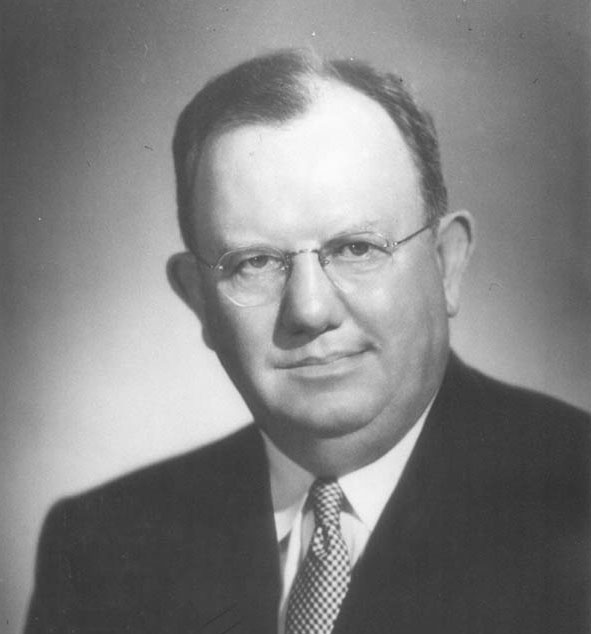Homer Capehart
| Homer E. Capehart | |
|---|---|
 |
|
|
United States Senator from Indiana |
|
|
In office January 3, 1945 – January 3, 1963 |
|
| Preceded by | William E. Jenner |
| Succeeded by | Birch Bayh |
| Personal details | |
| Born |
Homer Earl Capehart June 6, 1897 Algiers, Indiana |
| Died |
September 3, 1979 (aged 82) Indianapolis, Indiana |
| Resting place | Crown Hill Cemetery, Indianapolis, Indiana |
| Political party | Republican |
| Signature |  |
| Military service | |
| Service/branch | United States Army |
| Years of service | 1917–1919 |
| Rank | Sergeant |
| Battles/wars | World War I |
Homer Earl Capehart (June 6, 1897 – September 3, 1979) was an American businessman and politician. After serving in the United States Army during World War I, he became involved in the manufacture of record players and other products, He later served 18 years (1945–1963) as a Republican United States Senator from Indiana. Initially an isolationist on foreign policy, he took a more internationalist stance in later years. He retired after being defeated for a fourth term in the Senate.
Capehart was Born in Algiers, Indiana, in Pike County on June 6, 1897. He served as a sergeant in the United States Army Supply Corps during World War I.
Capehart attained fame as the father of the jukebox industry. He worked for the company Holcomb and Hoke, which made record players and popcorn machines, until 1928. He started his own company in 1928, and was forced out of the company by investors in 1931. The company was taken over as one of the divisions in the new Farnsworth Radio and Television Company in 1939. In 1932 Capehart formed a new company called Packard. Packard developed the Simplex mechanism for automatic record changing, and sold the device to Wurlitzer. The entire company was eventually bought by Wurlitzer.
Being the center-point for a Republican Party revolution in Indiana and the Midwest, mainly by sponsoring a huge "Cornfield-Conference" on one of his farms in 1938. Capehart was first elected to the United States Senate in 1944, narrowly defeating Henry Schricker, going on to win subsequent victories in 1950 and 1956 against token opposition. When first elected to the Senate at the height of World War II , Capehart supported efforts to compromise with the Japanese on terms of surrender in the Summer of 1945 when Senate Minority Leader Wallace H. White, Jr. stated that the war might end sooner if President Truman would state specifically in the upper chamber just what unconditional surrender meant for the Japanese. After 1945, Capehart was critical of the Truman administration and the military for their postwar policies in Germany, accusing Truman and General Dwight D. Eisenhower of a conspiracy to starve the remains of the German nation.
...
Wikipedia
